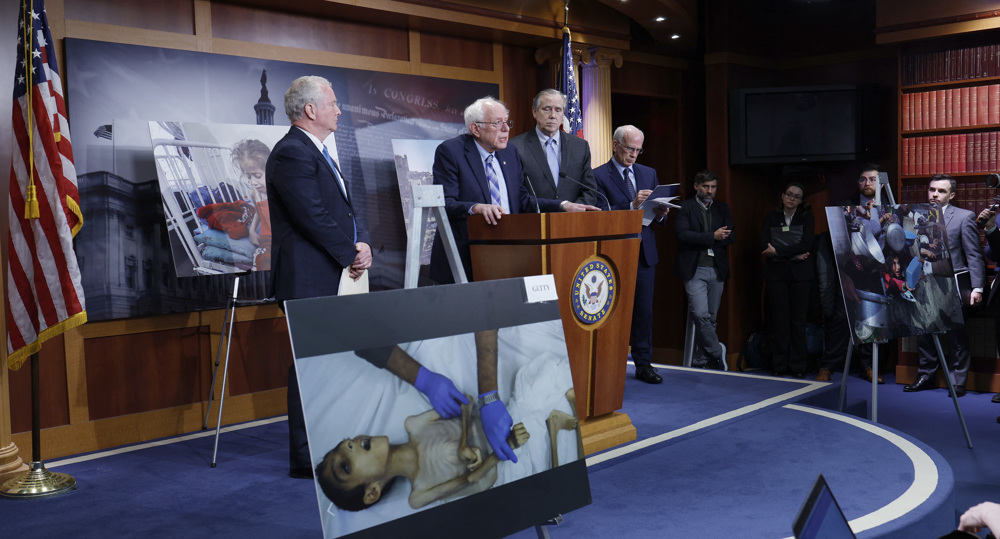US government turns off water to force activists out of Venezuela embassy
In yet another move to suppress voices backing Venezuela’s President Nicolas Maduro and his legitimate government, the US administration has turned off water supply to a group of anti-coup activists gathered at the Venezuelan Embassy in Washington in order to force them out of the diplomatic mission.
Members of the Embassy Protection Collective activist group said on Saturday that they have been left with no utilities after the water supply was shut off.
"Now the US govt. has turned off the water in the Venezuela Embassy to smoke us out. No lights, no water, little food. This is how Big Brother tries to crush other countries as well. We remain firm,” Code Pink's Medea Benjamin wrote on Twitter.
Now the US govt has turned off the water in the Venezuela Embassy to smoke us out. No lights, no water, little food. This is how Big Brother tries to crush other countries as well. We remain firm. Send love to #embassyprotectioncollective #HandsOffVenezeula
— Medea Benjamin (@medeabenjamin) May 11, 2019
Benjamin also said the struggle of the Embassy Protection Collective would go down in history, stressing that the activists were trying to stop "a coup, a US invasion and a civil war."
History will record the heroic struggle of the Venezuela #EmbassyProtectionCollective, living in the embassy for over a month to try to stop a coup, a US invasion and a civil war.
— Medea Benjamin (@medeabenjamin) May 11, 2019
The US government also cut off electricity in the embassy on Thursday.
The activists, motivated by their desire to prevent representatives of Venezuelan opposition leader Juan Guaido from taking over the mission, have been staying inside the embassy with the permission of the Venezuelan foreign ministry since late April.
Clashes between activists from the Embassy Protection Collective occupying the embassy and pro-Guaido Venezuelans camping outside the building escalated last week, resulting in nine arrests.
Venezuela has been shaken by political unrest in the past several months. In January, tensions worsened after Guaido, president of the defunct National Assembly, abruptly declared himself “interim president” of Venezuela, challenging the outcome of last year’s presidential election, in which Maduro emerged victorious.
Ever since, the US has been escalating tensions against oil-rich Venezuela, and has not ruled out the military option to take out Maduro’s government.
Last Tuesday, a small group of armed troops accompanying Guaido clashed with soldiers at an anti-government rally in Caracas in an attempted coup that soon petered out. More than 100 people were reportedly injured as a result of the violence.
The administration of US President Donald Trump quickly backed the attempted putsch but Maduro, who has called Guaido a puppet of Washington, announced in a televised speech later in the day that the group of military personnel supporting Guaido had been defeated and 25 renegade soldiers had sought refuge at the Brazilian embassy in Caracas.
Caracas has also accused Washington of waging an economic war, which has led to hyperinflation and widespread shortages of food and medicine in Venezuela.
VIDEO | Jordanians continue rallies to denounce Israeli genocide in Gaza, Lebanon
6 Israeli soldiers commit suicide: Reports
Diplomat discourages recourse to pressure, intimidation, confrontation against Iran
UN: 2024 deadliest year for aid workers amid genocide in Gaza
Gaza health official warns of hospital shutdowns within 48 hours
Israel kills 5 more paramedics in southern Lebanon: Health ministry
Iran to launch ‘new, advanced’ centrifuges in response to IAEA resolution: AEOI
Yemen fires hypersonic missile at Israeli airbase




















 This makes it easy to access the Press TV website
This makes it easy to access the Press TV website